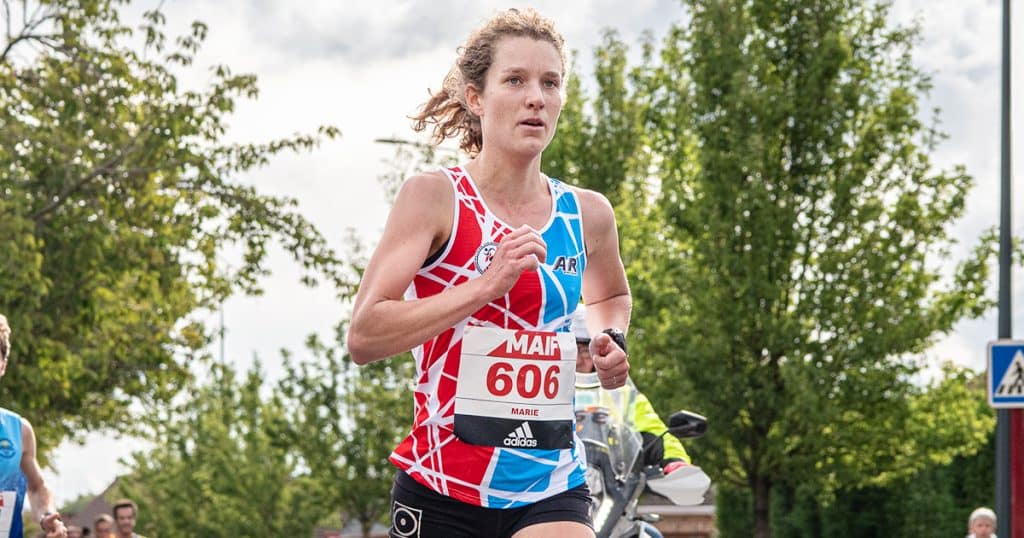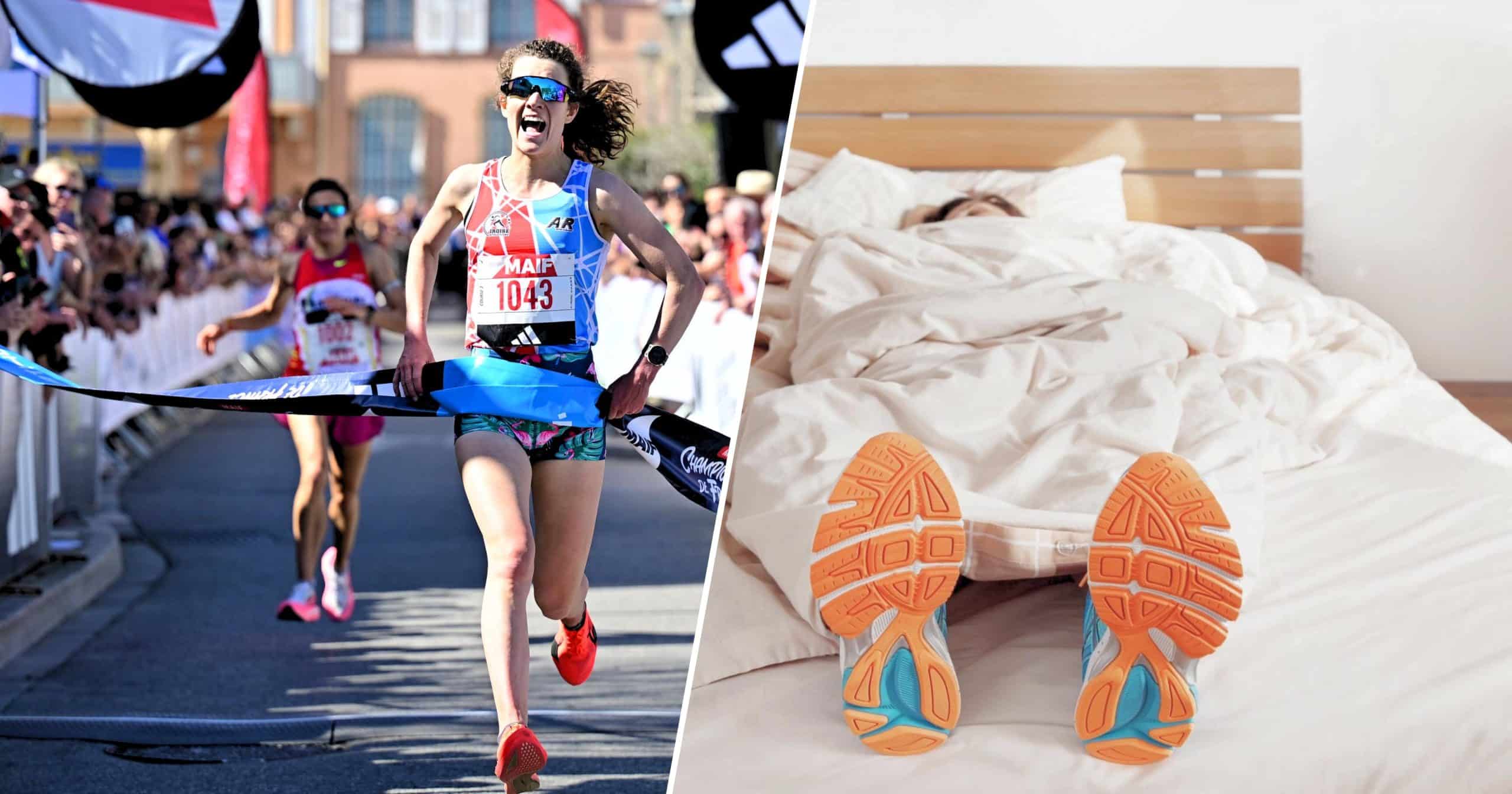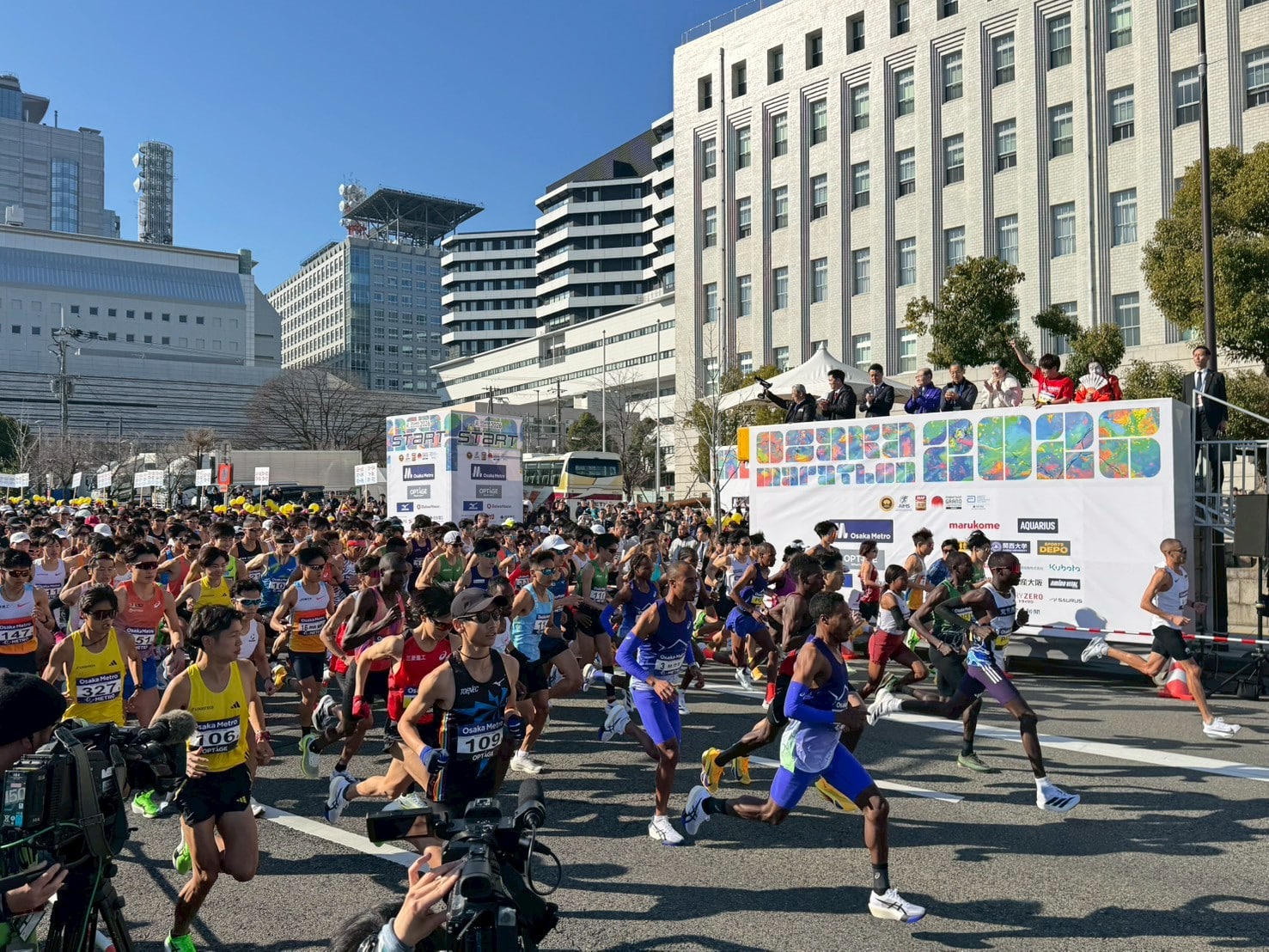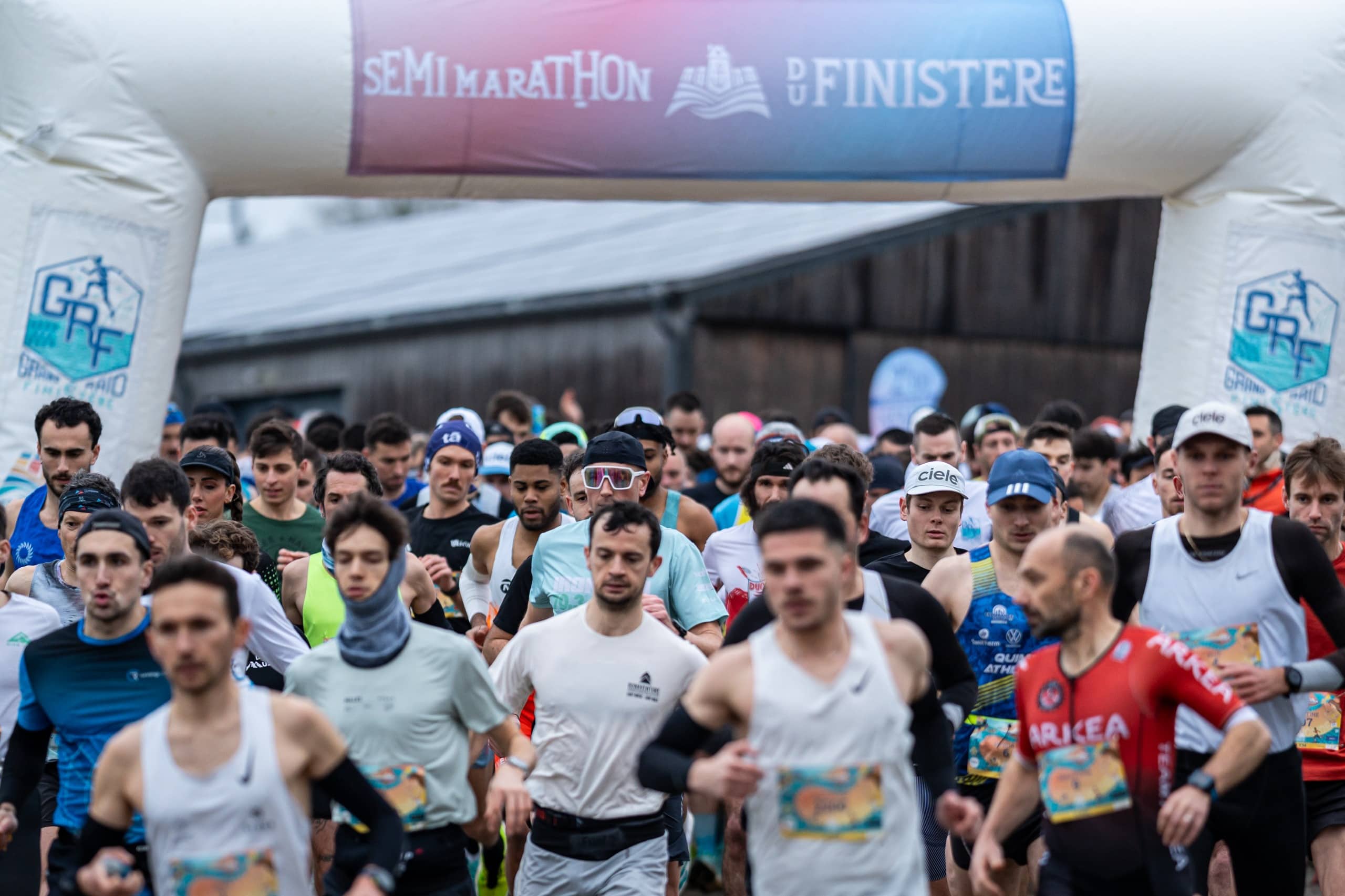Sleep: Morpheus and the running life
A common question arises: do marathon runners—and regular runners in general—sleep better than people with a sedentary lifestyle? The relationship between running and sleep is a complex one, teetering between clear benefits and some surprising drawbacks. On one hand, moderate physical activity promotes deeper, more restorative sleep. On the other, overtraining or pre-race stress can disrupt sleep patterns. Let’s dive into the world of Morpheus, with insights from Marie Bouchard, an elite French athlete and resident doctor specializing in Physical and Rehabilitation Medicine.
| Running and deep sleep: a winning combo?
Deep sleep is the most restorative phase of the sleep cycle, essential for muscle recovery and memory consolidation. Numerous studies suggest that aerobic exercise, like running, increases the amount of time spent in this crucial sleep stage. For instance, a 2017 study led by Alexandra Kredlow—now a researcher at Harvard—found that regular physical activity improves sleep quality, especially by lengthening the duration of deep slow-wave sleep. And the relationship goes both ways: good sleep strengthens the body.
A 2020 study by B.A. Dolezal observed that moderate runners (running 30–45 minutes, 3–4 times a week) showed better sleep architecture than sedentary individuals, with fewer nighttime awakenings. Overall, the research confirms a two-way relationship between exercise and sleep quality.
As for the immediate impact of a single workout session on sleep, findings suggest only modest, variable effects depending on the individual. But here’s some good news: despite earlier warnings, exercising in the evening is no longer considered harmful to sleep—at least for people who are already good sleepers. That said, it’s still recommended to keep evening workouts on the lighter side.
Marie Bouchard, the French elite runner and medical resident, shares her own perspective: “I’m lucky—I’ve never had sleep problems. I don’t think the advice differs much between the general population and runners. But I’m convinced that sport helps promote good sleep. More physical exertion means more energy spent, and your body naturally wants—and needs—to rest and recover. A balanced diet also helps. For example, eating a lighter lunch can reduce that heavy post-meal fatigue. Drinking plenty of water during the day but cutting back in the evening can prevent nighttime awakenings to use the bathroom.”

| The parasympathetic nervous system: your ally in recovery
The parasympathetic nervous system plays a central role in recovery and maintaining physiological balance, especially after moderate exercise. It helps calm the body by slowing the heart rate, stimulating digestion, and lowering blood pressure—all of which support better sleep and easier sleep onset. This “rest and digest” system is primarily activated via the vagus nerve, which influences the heart, digestion, and even the immune system.
However, intense workouts—like marathon races or interval training—can extend the activation of the sympathetic nervous system, the one responsible for the “fight or flight” response, keeping levels of adrenaline and cortisol elevated and delaying relaxation. That’s why experts advise sticking to lighter training sessions in the evening.
To optimize recovery, runners should avoid working out too late at night, taper volume before a race, and adopt healthy habits: going to bed at consistent times, refueling after exercise with protein and complex carbs, and managing fluid intake in the evening. Short naps can also be valuable, helping athletes recover neurologically without interfering with nighttime sleep, thanks to their brief, targeted duration. By embracing these habits, runners can harness the full benefits of the parasympathetic system—vital for performance and physiological regeneration.
When it comes to insomnia—severe cases of which affect over 10% of the population—research is surprisingly scarce. But in July 2024, a Japanese study involving nearly 600 participants shed new light on the issue. “Our findings suggest that the benefits of physical activity on sleep are greater among people with insomnia than in the general population,” the authors concluded. They advocate for including exercise as a recommended non-pharmaceutical treatment for insomnia.
Keep in mind: during sleep, your brain processes and stores the information you’ve gathered throughout the day. Sleep is when your body regenerates, and your brain, although resting, remains active—especially in consolidating memory.
| Marathons and sleep: the paradox
Many runners report sleeping deeply and soundly after a long weekend run. But when race day approaches, sleepless nights become all too common. While casual joggers might drift off like babies after a good run, seasoned marathoners often experience the opposite effect. Between pre-race nerves and mounting excitement, sleep can suffer.
A 2019 study found that 70% of endurance athletes experience sleep disturbances before a competition, largely due to elevated cortisol and anxiety levels. Marie Bouchard agrees but puts things into perspective: “It’s true that the nights before races are often the worst, because of all the excitement. But with my hectic weekly schedule, I don’t really have that ‘problem’ anymore. In fact, I think race weekends are when I actually catch up on rest! Working night shifts probably contributes—afterward, your brain keeps replaying patient cases, you’re on alert, so sleep isn’t great… So yes, managing stress is definitely key to getting good sleep.”
Another pitfall to watch out for: overtraining, which can lead to chronic fatigue—and even insomnia.
The key to assessing your needs, especially when it comes to sleep, is self-awareness. By listening to your body and understanding how it works, you can spot the warning signs of sleep deprivation: a lack of motivation to train, reduced explosiveness, increased irritability, or even symptoms of depression.
Marie Bouchard offers a few final tips, shaped by her intense work schedule: “After an overnight shift—which often means a 25-hour day with just 2–3 hours of sleep—I nap as soon as I can and avoid scrolling on my phone. Usually, I sleep from 11 a.m. to around 4 or 5 p.m., then go out for an easy aerobic run and have no trouble sleeping a full night afterwards. I ALWAYS sleep with earplugs, even when it’s quiet—it puts me in my own little bubble. Ideally, I also keep my bedroom cool and as dark as possible.”
They say the devil wears Prada, but when it comes to sleep, he hides in the details.

Charles-Emmanuel PEAN
Journaliste



